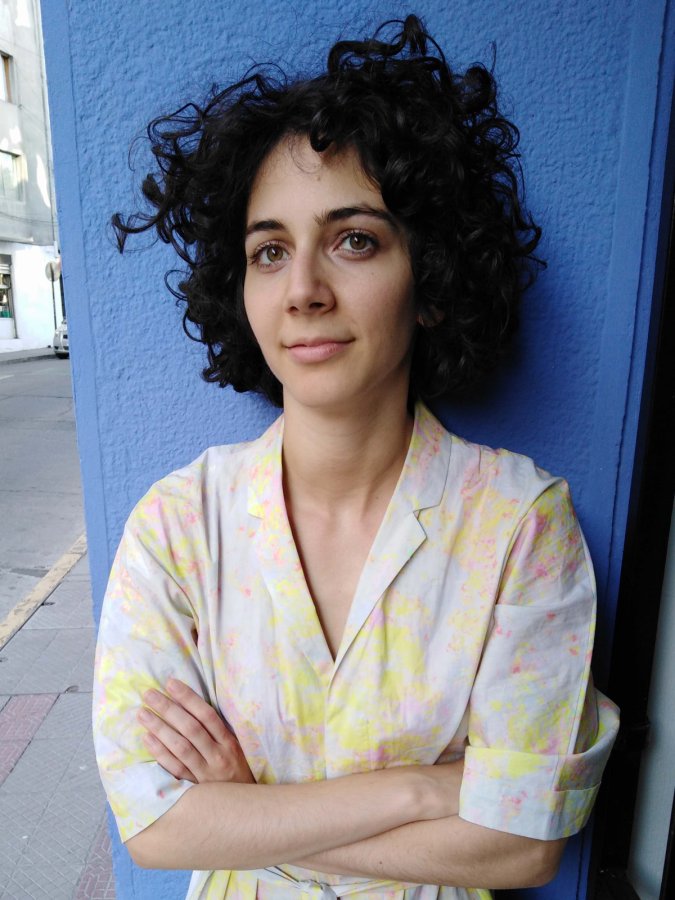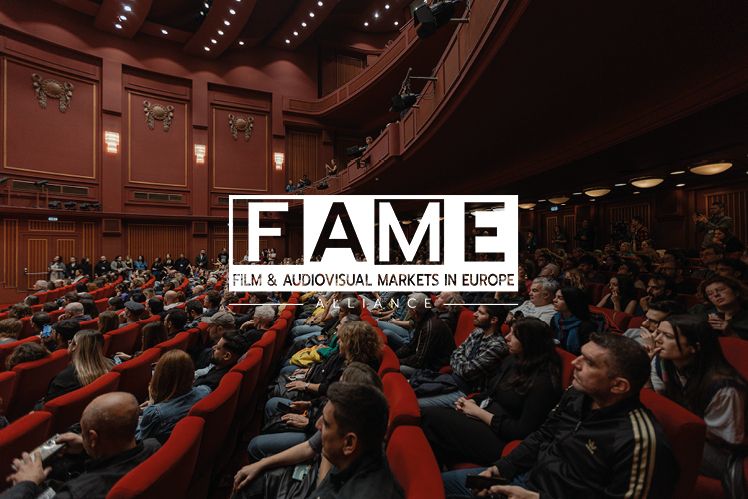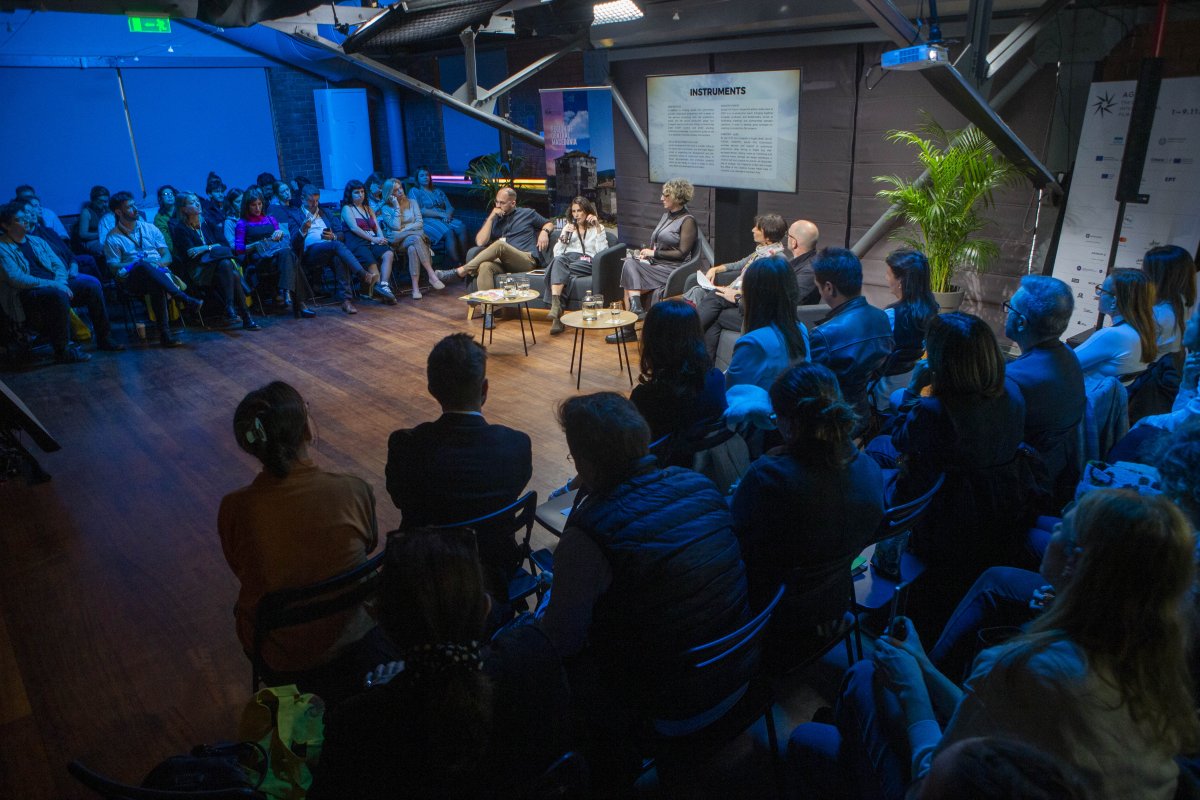In a deeply moving ambiance, beloved friends, colleagues, and relatives of Michel Dimopoulos gathered to pay tribute to the memory of the Thessaloniki Film Festival’s director from 1991 to 2005, on Saturday, November 4th, in a packed Pavlos Zannas theater. The screening of Victor Erice's film The Spirit of the Beehive, one of Michel Dimopoulos' favorite movies, rendered homage to the visionary and pioneer Michel Dimopoulos, the man responsible for the internalization of the Festival, and broadening of its horizons.
Taking the floor before the screening, journalists Vena Georgakopoulou and Maria Katsounaki, film critic Christos Mitsis, along with Dimitris Kerkinos, Head of Survey Expanded section and the Festival’s Tributes, referred to their personal relationship and their experiences with Michel Dimopoulos. At the same time, they highlighted his invaluable contribution to the Thessaloniki Film Festival, as well as the overall legacy he left to the contemporary culture of the country. The speakers were introduced by the festival's artistic director, Orestis Andreadakis, who noted that this year's festival pays tribute to Michel Dimopoulos through a series of events. These honorary actions include the renaming of the Golden Alexander for the expanded Meet the Neighbors+ section to "Golden Alexander - Michel Dimopoulos", as well as the Festival’s magazine First Shot, which exclusively features texts and analyses by Michel Dimopoulos.
Vena Georgakopoulou initially addressed the challenges and difficulties Michel Demopoulos faced during his tenure, in an era that indelibly marked the evolution and the upgrading of the institution. "I'm trying to remember what my first image and memory of Michel Dimopoulos was. After giving it a thought, I would have to choose one afternoon in the early 80s, right below the famous back then Women's Café on Gennadiou street, as he was waiting for a girl. Men were strictly prohibited from entering, no one ever dared to go up there. Michel struck me as tall, imposing, elegant and very, very handsome. And of course, I knew who he was, because the feminist movement and intellectual circles were deeply intertwined at the time. Contrasting the intensely conflicting political environment of the time when he took his first steps as the head of the Thessaloniki Film Festival, with his struggle to modernize the institution, Vena Georgakopoulou provided a glimpse of his character. "He was this serene, calm, peaceful person, dedicated to his art both as a renowned theorist and a disciplined scholar, who found himself compelled to lead an unimaginable political struggle for institution’s modernization," she remarked pointedly. "He possessed an incredible faith in his vision and an internal commitment and dedication to the goal of transforming the festival."
Immediately after, journalist Maria Katsounaki took over and outlined the multifaceted and tireless personality of Michel Dimopoulos. “Michel was a laborer of cinema, but also a true voyager in the art of film. He traveled the world, attended all the festivals, and as a traveler through time, he was also able to traverse 130 years of film history with great ease, without ever stumbling or losing his way. Voyager of ideas, as well, as he not only shaped them but actively participated in their conception; he was part of their birth. Furthermore, he was a traveler in languages and human communication. Besides his near-native French, he spoke impeccable English and Italian," she noted. As for Michel Dimopoulos' relationship with the Thessaloniki Film Festival, Maria Katsounaki pointed out: "He was an individual inherently connected with cinema, nourished by films, almost living within the festival. The festival was his very own “Spirit of the Beehive”. I always remember him standing and moving, never static or behind a desk. He loved meeting people face to face, not by distance. Michel did not play the role of the director. He was the role, he shaped it and gave it form and content. Alongside Dimitri Eipides, they were the ones who shaped and formed the Festival, providing it with backbone and character."
Film critic Christos Mitsis highlighted Michel Dimopoulos' soothing and conflict-resolving character, his dedication to both the institution of the Thessaloniki Film Festival and the support of Greek cinema, as well as his legacy to the country's culture through the publications he curated. "Judging by the work he has left behind, Michel was the living example of what it truly means, in its full sense, to be a film critic. Michel taught us all about cinema, and take my word for it, I’m not exaggerating things," he said, before adding: "His work as head of the Festival, combined with the publications he curated for the Festival with such selflessness, is the finest one can find in Greek bibliography on the art of cinema. Books on cinema began to be published and circulated in recent years, but until almost 2000, only Aigokeros publications and the Festival's editions existed in this field. Michel's texts, analyses, and publications are invaluable and showcase his contribution to the country's culture, beyond all his well-known accomplishments as director of the Thessaloniki Film Festival."
Dimitris Kerkinos shared the experience of his professional collaboration alongside Michel Dimopoulos with the audience. “I first encountered Michel as a high school student through the pages of Sychronos Kinimatografos (Contemporary Cinema) magazine, which, along with the famous Film Club aired at the public television and co-coordinated by him, constituted my first apprenticeship in cinema. When I began working at the festival, my joy was indescribable, as was the anxiety I felt to prove myself, as if I was silently being tested by someone from whom I had learned so much. Because Michel, for so many, and for me too, was above all a teacher. For those of us who love cinema and festivals, Michel was a source of inspiration and respect. He is the one who gave it its international prestige, who brought huge names of world cinema to Thessaloniki, who discovered new creators. It is he who introduced film editions and books, leaving a legacy that will never fade, because no matter how many years pass, they will continue to be a point of reference for all of us. He organized magnificent tributes, he brought the Balkan Fund, the forerunner of today's Agora, he paved the way for the next artistic directors to take the Festival one step further and leave their own mark. For all this, Michel, we thank you from the bottom of our hearts."
















